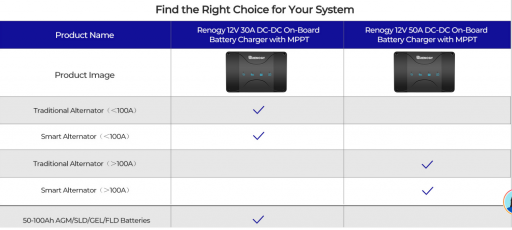I'm hoping someone here might be able to help me.
If not answer directly maybe point me to where I can ask this question.
I have a 2021 Jeep E Torque model that doesn't use a alternator, uses a generator.
To hook up the Renogy battery charger I need to know what the generator output is.
Renogy 30A is less than 100A
Renogy 50A is more than 100A
If not answer directly maybe point me to where I can ask this question.
I have a 2021 Jeep E Torque model that doesn't use a alternator, uses a generator.
To hook up the Renogy battery charger I need to know what the generator output is.
Renogy 30A is less than 100A
Renogy 50A is more than 100A




